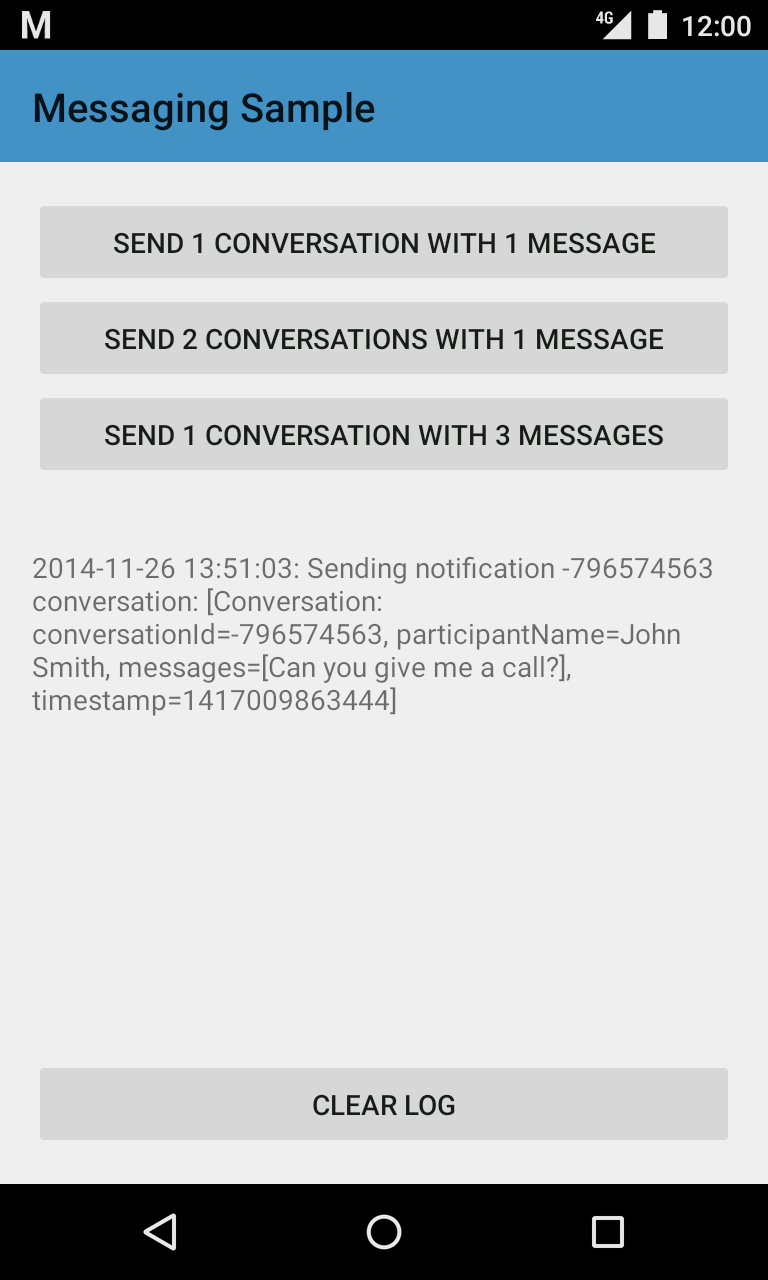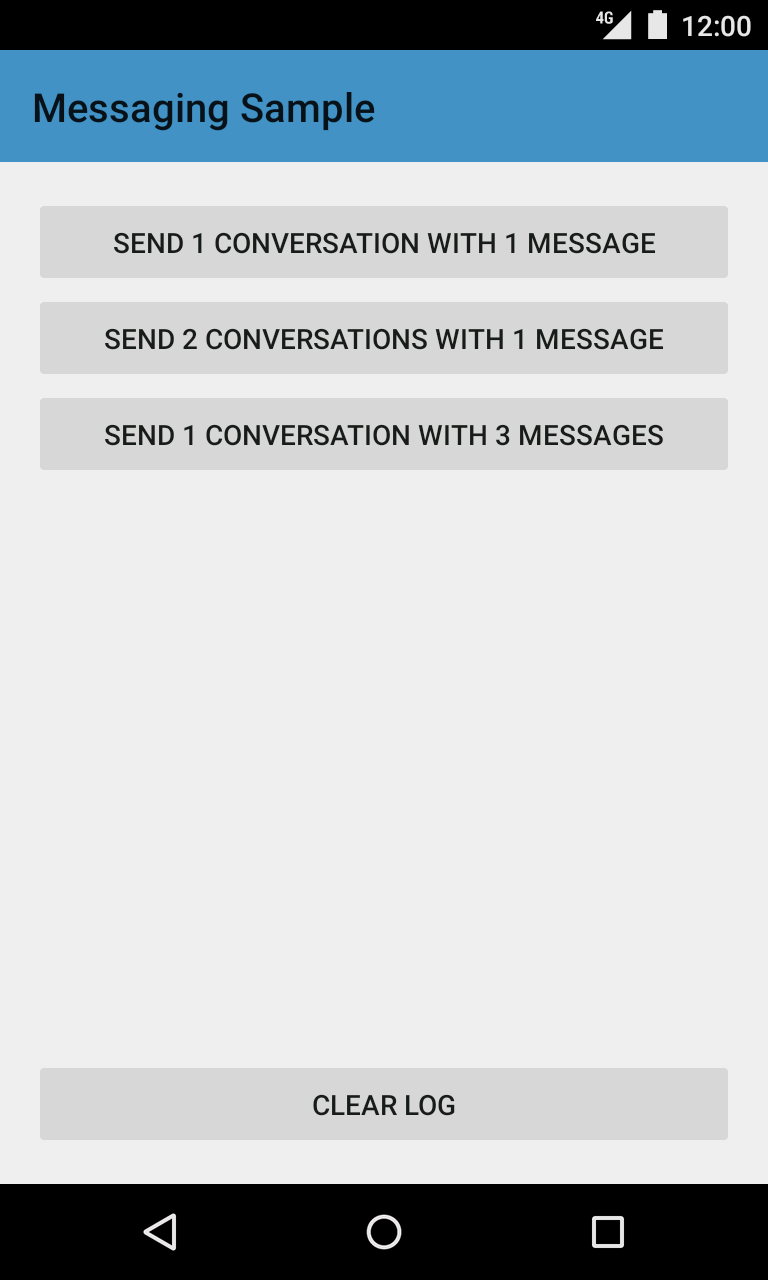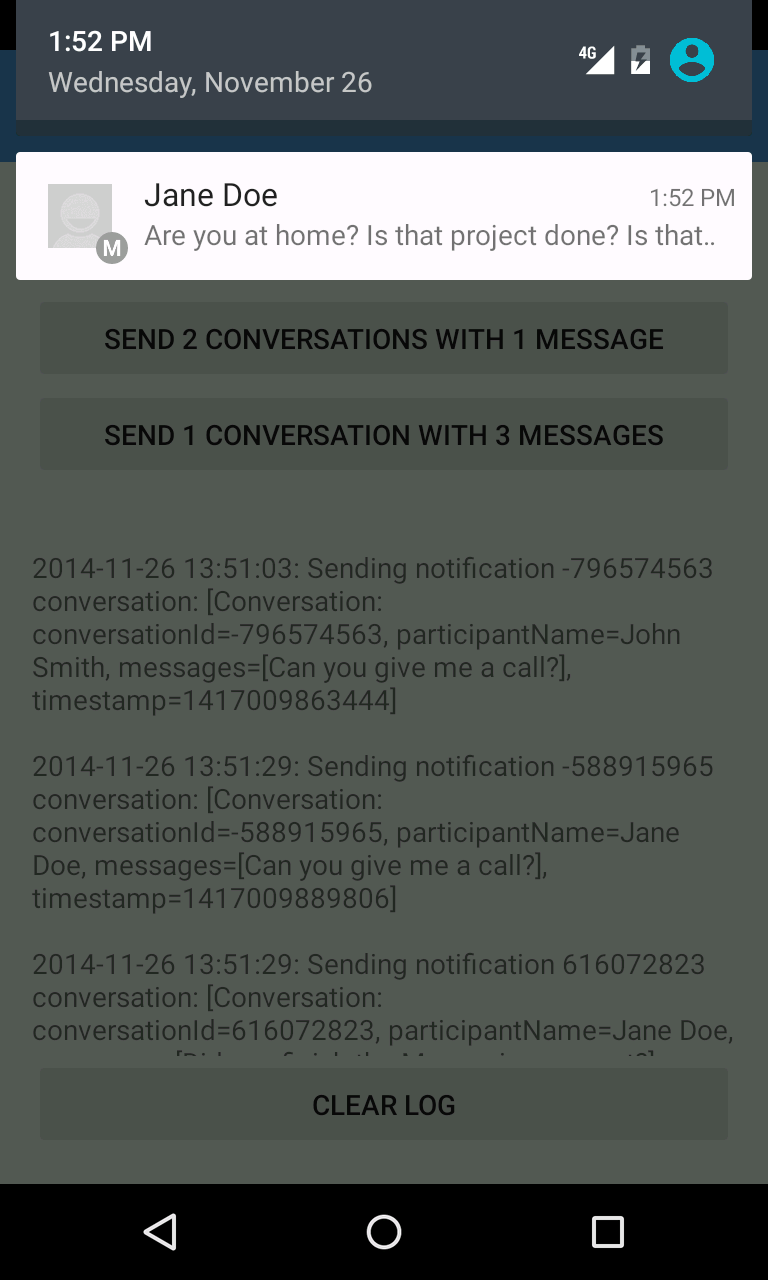Android MessagingService Sample
This sample shows a simple service that sends notifications using NotificationCompat. It also extends the notification with Remote Input to allow Android N devices to reply via text directly from the notification without having to open an App. The same Remote Input object also allows Android Auto users to respond by voice when the notification is presented there. Note: Each unread conversation from a user is sent as a distinct notification.
Introduction
Checklist while building a messaging app that supports Android Auto:
- Ensure that Message notifications are extended using NotificationCompat.Builder.extend(new CarExtender()...)
- Declare a meta-data tag to your AndroidManifest.xml to specify that your app is automotive enabled.
example: AndroidManifest.xml
<meta-data android:name="com.google.android.gms.car.application"
android:resource="@xml/automotive_app_desc"/>Include the following to indicate that the application wants to show notifications on the Android Auto overview screen.
example: res/xml/automotive_app_desc.xml
<automotiveApp>
<uses name="notification"/>
</automotiveApp>Flow
MessagingFragment is shown to the user. Depending on the button clicked, the MessagingService is sent a message. MessagingService in turn creates notifications which can be viewed either on the device or in the messaging-simulator.
When a message is read, the associated PendingIntent is triggered and MessageReadReceiver is called with the appropriate conversationId. Similarly, when a reply is received, the MessageReplyReceiver is called with the appropriate conversationId. MessageLogger logs each event and shows them in a TextView in MessagingFragment for correlation.
Pre-requisites
- Android SDK 24
- Android Build Tools v26.0.1
- Android Support Repository
Screenshots



Getting Started
This sample uses the Gradle build system. To build this project, use the "gradlew build" command or use "Import Project" in Android Studio.
Support
- Google+ Community: https://plus.google.com/communities/105153134372062985968
- Stack Overflow: http://stackoverflow.com/questions/tagged/android
If you've found an error in this sample, please file an issue: https://github.com/googlesamples/android-MessagingService
Patches are encouraged, and may be submitted by forking this project and submitting a pull request through GitHub. Please see CONTRIBUTING.md for more details.
License
Copyright 2017 The Android Open Source Project, Inc.
Licensed to the Apache Software Foundation (ASF) under one or more contributor license agreements. See the NOTICE file distributed with this work for additional information regarding copyright ownership. The ASF licenses this file to you under the Apache License, Version 2.0 (the "License"); you may not use this file except in compliance with the License. You may obtain a copy of the License at
http://www.apache.org/licenses/LICENSE-2.0
Unless required by applicable law or agreed to in writing, software distributed under the License is distributed on an "AS IS" BASIS, WITHOUT WARRANTIES OR CONDITIONS OF ANY KIND, either express or implied. See the License for the specific language governing permissions and limitations under the License.
compile "com.android.support:support-v4:26.1.0"
compile "com.android.support:support-v13:26.1.0"
compile "com.android.support:cardview-v7:26.1.0"
compileSdkVersion 24
minSdkVersion 21
targetSdkVersion 24
package com.example.android.messagingservice
MainActivity
MessagingService
Handler for incoming messages from clients.
MessageReadReceiver
MessageReplyReceiver
A receiver that gets called when a reply is sent to a given conversationId.
Get the message text from the intent. Note that you should call {@code RemoteInput#getResultsFromIntent(intent)} to process the RemoteInput.


